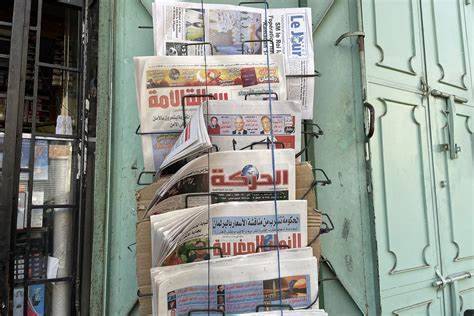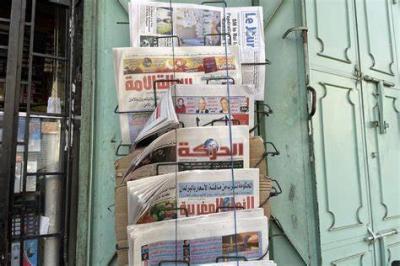As the day approaches its end in Najaf, newspaper vendor Fadel Ali returns home feeling disappointed, as the bag of printed newspapers he carries while wandering around the city of Kufa remains full. With the news industry heavily relying on digital content and technology accessible to the public worldwide, newspaper sellers who depend entirely on printed journalism are facing significant challenges and are forced to seek alternative sources of income. Ali explained that in Najaf Governorate in southern Iraq, just a few years ago, about 250 people earned a living selling newspapers on the streets. He said that today, only three remain, including himself. He added that while they are committed to their profession, they struggle to meet their basic needs.
He stated, "In the past, there were decisions and different circumstances; newspapers were sold, and they contained beautiful things. Mobile phones have destroyed newspapers, they have destroyed all newspapers. What can we do? Many remain unsold. We used to be 250 people selling newspapers in Najaf; now we are down to three. I am in Kufa, and two are in Najaf. What can we do? The newspaper doesn’t sell here. We have to sell it to glass owners or for cleanup, or to paint shops. This is the state of newspapers."
The sharp decline in printed journalism is evident to vendors, printing houses, and consumers alike. Rahman Abdul Jabbar, a printing house manager, stated, "Of course, the difference has become vast. Since 2003, media freedoms increased due to the change in regime, many newspapers began to be published daily in massive quantities. By around 2014, these quantities started to decline; there was austerity, and many titles diminished and disappeared. It became a global crisis due to the emergence of the internet; fewer people follow newspapers now. Some titles remained, but how many? It is not like before; there is a significant difference from the past."
Nawar Muhyi, a bookstore owner and publisher, noted that speed is the key requirement for updating news, which is now available within minutes around the globe, eliminating the need to wait for newspaper publication the next morning. He added, "As a news follower of various details in different forms, I won’t wait for a newspaper to be published the next day to know what others know in minutes and in real time. Information today is readily available; it spreads rapidly, like a wildfire, within moments around the world. Therefore, this is the most desired attribute in the modern world: the rapid updating of information. Thus, the printed newspaper has lost its allure."
Retired teacher Muhammad Al-Obeidi, while reading a newspaper and sipping coffee in a café in Baghdad, said, "Despite technological advances, we find comfort in reading the newspaper. A psychological comfort. Because we are more attached to the past than the present; that is the reason."
Writer Rifaat Abdul Razak from Al-Mada newspaper remarked, "Undoubtedly, the significant decline in printed journalism has been astonishing; many newspapers, not just in Iraq but across the Arab world and globally, have closed their doors, and their management has dissolved. Some newspapers have completely transitioned to digital formats." He added, "Printed journalism, as I said, will completely disappear in a few years. However, some newspapers have maintained their traditions and retained their prestige up to this day. Several major newspapers in Baghdad have continued despite weak resources and the decline in advertisements, which were the main funding source for non-governmental newspapers. Printed journalism has regressed significantly, but it still resists the passage of time and has many loyal readers."




